Liver disease is a significant health concern affecting avian species, including birds of all sizes, from small pet birds to large birds of prey. The liver plays a crucial role in maintaining the overall health and well-being of birds, making any dysfunction or disease in this organ a matter of great concern.
Liver disease in birds refers to a range of conditions that affect the structure and function of the liver, leading to various symptoms and potential complications.
Understanding the causes, symptoms, diagnosis, and treatment of liver disease in birds is essential for avian enthusiasts, bird owners, and veterinarians to ensure these unique creatures’ optimal health and welfare.
This article provides an overview of liver disease in birds, including its definition, the vital role of the liver in avian health, and an introduction to common liver diseases affecting birds of different species.
By shedding light on this topic, we aim to raise awareness and promote a better understanding of liver disease in birds for improved prevention, early detection, and treatment strategies.
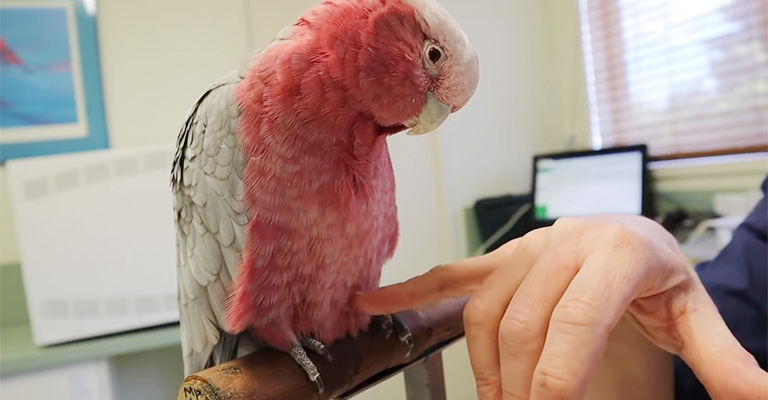
Symptoms Of Liver Disease In Birds
Liver disease in birds can manifest through various symptoms that indicate the dysfunction of this vital organ. Understanding the signs of liver disease is crucial for early detection and prompt treatment.
This section explores the general signs of liver disease and specific symptoms based on the type of liver disease, including hepatitis, fatty liver disease, liver tumours, and cirrhosis.
General signs of liver disease:
Birds with liver disease may exhibit common signs such as decreased appetite, weight loss, lethargy, and increased thirst. Changes in droppings, including alterations in colour, consistency, and odour, are often observed. Affected birds may also display respiratory distress, jaundice (yellowing of the skin and eyes), and poor feather condition.
Specific Symptoms Based On The Type Of Liver Disease
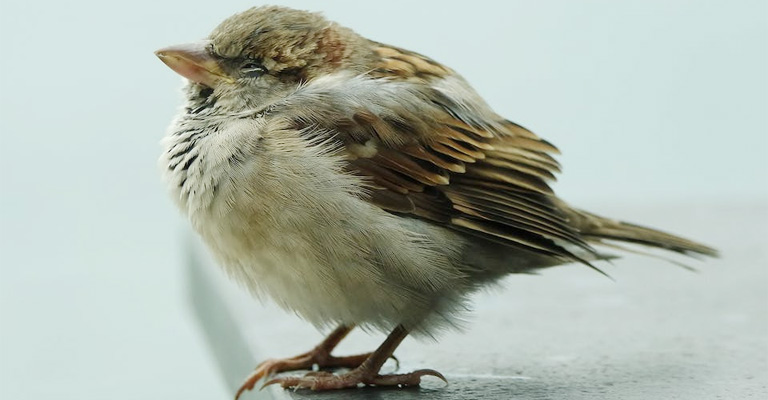
Hepatitis
Hepatitis in birds can result from viral, bacterial, or parasitic infections. Symptoms include liver enlargement, reduced activity levels, regurgitation, diarrhoea, and anorexia. Affected birds may also show neurological signs, such as head tilt, tremors, and seizures.
Fatty Liver Disease
Birds with fatty liver disease may present with obesity, enlarged liver, and abdominal distension. They may have a reduced appetite, experience difficulty breathing, and show signs of weakness or exercise intolerance.
Liver Tumours
Liver tumours can cause weight loss, anaemia, and weakness in birds. Affected birds may also exhibit abdominal distension, difficulty flying, and a general decline in health.
Cirrhosis
Cirrhosis is characterized by fibrosis and scarring of the liver tissue. Birds with cirrhosis may display symptoms such as jaundice, fluid accumulation in the abdomen, reduced muscle mass, and increased susceptibility to infections.
Causes Of Liver Disease In Birds
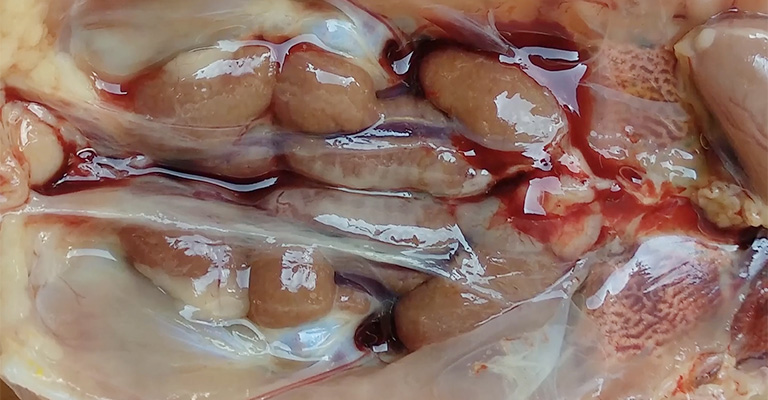
Liver disease in birds can have various causes, including infectious and non-infectious factors. Understanding these causes is crucial for proper diagnosis and treatment.
Infectious Causes
- Viral infections: Several viruses can target the liver in birds, such as avian hepatitis viruses and avian circoviruses. These viruses can cause inflammation and damage to the liver tissue, leading to liver disease.
- Bacterial infections: Certain bacterial infections, such as avian tuberculosis and salmonellosis, can affect the liver in birds. Bacteria may invade the liver and trigger an inflammatory response, disrupting liver function.
- Parasitic infections: Parasites like liver flukes, coccidia, and roundworms can infest the liver and cause damage to the organ. These parasites can interfere with liver function and lead to liver disease.
Non-Infectious Causes
- Dietary factors: Poor nutrition, imbalanced diets, or deficiencies in essential nutrients can contribute to liver disease in birds. Excessive consumption of high-fat or high-protein diets can also strain the liver.
- Toxins and chemicals: Exposure to certain toxins and chemicals, such as heavy metals, pesticides, and toxic plants, can damage the liver. Birds are susceptible to these substances, which can accumulate in the liver and cause harm.
- Metabolic disorders: Metabolic disorders, such as lipid storage disease or iron storage disease, can affect the liver’s ability to process and store essential substances properly. This dysfunction can lead to liver disease in birds.
- Genetic predisposition: Some bird species may have a genetic predisposition to certain liver diseases. These genetic factors can affect the structure and function of the liver, increasing the likelihood of liver disease development.
Diagnosis Of Liver Disease In Birds
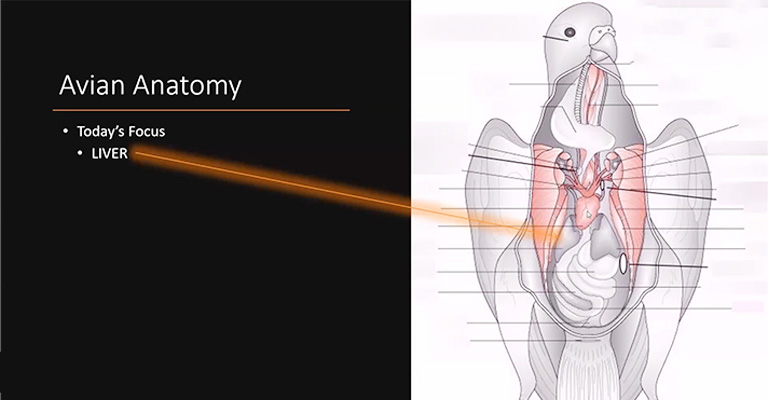
Accurate diagnosis of liver disease in birds is crucial for effective treatment and management. Avian veterinarians employ various diagnostic methods to assess the condition of the liver and identify underlying causes.
These methods include physical examination, medical history evaluation, laboratory tests, imaging techniques, biopsy, histopathology, and differential diagnosis.
Physical Examination And Medical History
During a physical examination, the avian veterinarian examines the bird for signs of liver disease, such as changes in behaviour, feather quality, or abdominal distension. They also consider the bird’s medical history, including exposure to potential toxins or infections.
Laboratory Tests
Blood tests play a vital role in diagnosing liver disease in birds. These tests assess liver enzyme levels, such as alanine aminotransferase (ALT) and aspartate aminotransferase (AST).
Other blood parameters, such as bile acids, albumin, and total protein, provide valuable information about liver function and potential complications.
Imaging techniques, including radiography and ultrasound, help evaluate the liver’s structure, size, and presence of abnormalities, such as tumours or cysts.
Biopsy And Histopathology
In some cases, a liver biopsy may be necessary to obtain a sample of liver tissue for further examination. This procedure helps identify the specific liver disease and provides insights into the severity and extent of liver damage.
Histopathology involves microscopic analysis of the liver tissue, enabling the veterinarian to identify cellular changes and potential underlying causes.
Differential Diagnosis
Differential diagnosis involves ruling out other potential diseases or conditions that may mimic liver disease symptoms. This process helps narrow down the possible causes and aids in formulating an accurate diagnosis.
Through a comprehensive diagnostic approach encompassing physical examination, medical history assessment, laboratory tests, imaging techniques, biopsy, histopathology, and differential diagnosis, avian veterinarians can effectively diagnose liver disease in birds, leading to appropriate treatment and management strategies.
Treatment Of Liver Disease In Birds
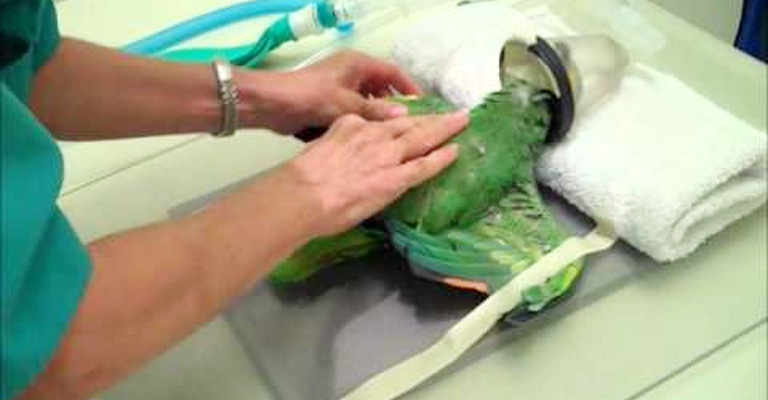
Liver disease in birds requires a comprehensive approach to restore and maintain avian health. Treatment options can be broadly categorized into supportive care and specific interventions targeting the underlying causes of liver disease.
Supportive Care
Supportive care alleviates symptoms, enhances the bird’s comfort, and promotes healing. Rest and stress reduction is crucial to minimize the strain on the liver. Nutritional support with a well-balanced diet helps maintain proper liver function.
Fluid therapy assists in hydration and supports liver detoxification. Environmental modifications, such as a quiet and clean living space, can reduce stress and aid recovery.
Specific Treatment Options
- Antiviral medications: In cases where viral infections contribute to liver disease, antiviral medications may be prescribed to combat the viral agents.
- Antibiotics: Bacterial infections can lead to liver damage, and antibiotics are administered to control and eliminate bacterial growth.
- Anthelmintics: If parasitic infestations are causing liver disease, anthelmintics are used to eliminate parasites and their eggs.
- Dietary changes: Adjusting the bird’s diet to include liver-friendly foods can promote healing and reduce further damage.
- Surgical interventions: In some instances, surgical procedures may be necessary to remove liver tumours or address specific liver issues.
By combining supportive care with targeted treatments, veterinarians can effectively manage liver disease in birds and improve their chances of recovery. Early detection and timely intervention are essential for successful outcomes in these avian patients.
Prevention And Management Of Liver Disease In Birds
Proactive measures for preventing and managing liver disease in birds are crucial to promoting their overall health and well-being. By focusing on vaccination programs, proper nutrition and diet, environmental considerations, and regular veterinary check-ups, bird owners can significantly reduce the risk and impact of liver disease.
Vaccination Programs
Vaccinations protect birds from infectious diseases that can affect their liver. Vaccines specifically formulated for avian species are available to prevent diseases such as avian viral hepatitis and infectious bronchitis.
Following a recommended vaccination schedule can help build a robust immune response and reduce the likelihood of liver disease development.
Proper Nutrition And Diet
Providing a well-balanced and species-appropriate diet is essential for liver health in birds. This includes offering a variety of fresh fruits, vegetables, grains, and high-quality proteins.
Avoiding fatty or processed foods, excessive sugar, and high toxins like aflatoxins is critical, as these can contribute to liver damage and disease.
Environmental Considerations
Creating a suitable and stress-free environment is vital for maintaining a healthy liver in birds. Factors such as adequate space, proper ventilation, and temperature control help minimize stress and reduce the risk of liver disease.
Additionally, ensuring clean and hygienic living conditions, including regular cage cleaning and removal of potential toxins, is essential.
Regular Veterinary Check-Ups
Regular veterinary examinations and check-ups are crucial for detecting and managing liver disease in birds.
Veterinarians can perform thorough physical inspections, assess liver function through blood tests, and provide guidance on preventive measures and appropriate treatment plans.
Timely veterinary intervention can help address potential liver issues before progressing to more severe stages.
Frequently Asked Questions
While not all cases of liver disease can be prevented, providing a well-balanced diet, avoiding exposure to toxins, and regular veterinary check-ups can help reduce the risk.
Liver disease in birds is not typically contagious to other birds or humans. However, some underlying infections may have zoonotic potential.
If left untreated or in severe cases, liver disease can be life-threatening for birds.
The prognosis depends on the underlying cause, duration, and severity of the liver disease. Early diagnosis and appropriate treatment increase the chances of recovery.
Dietary modifications, including a low-fat, high-fibre diet and incorporating antioxidants, can support liver health. It is best to consult with an avian veterinarian for specific dietary recommendations.
Conclusion
A significant health concern of Liver disease in birds requires prompt attention and proper management.
Recognizing the symptoms, understanding the causes, seeking timely veterinary care, and implementing appropriate treatment strategies are essential for improving the bird’s overall health and prognosis.
By providing a suitable diet, minimizing exposure to toxins, and ensuring a stress-free environment, bird owners can help prevent or mitigate the risk of liver disease in their avian companions.
Regular veterinary check-ups and proactive care are crucial in maintaining the liver health of our feathered friends.